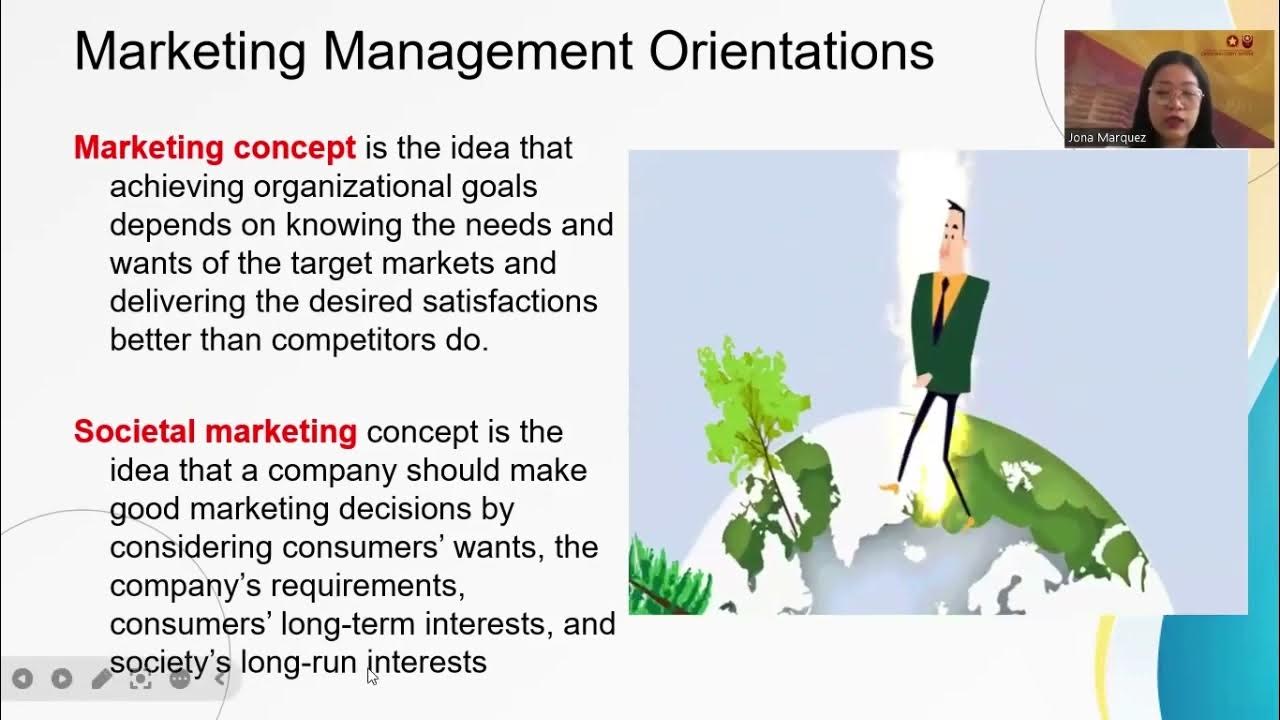Topic 1.1 What is marketing? - Exchange and stakeholders
Summary
TLDRThe transcript discusses the concept of value and exchange in marketing, emphasizing the importance of transactions and customer relationships. It contrasts one-time transactions, often linked to unethical behavior, with ongoing customer interactions, like those with Starbucks, which focus on long-term value. The idea of stakeholders is explored, highlighting that successful businesses prioritize not only shareholders but also customers, employees, suppliers, and the community. Ethical business practices, sustainable operations, and fostering healthy ecosystems are key to long-term success. The speaker also touches on the evolving nature of business theories and marketing strategies.
Takeaways
- 🔄 An exchange occurs only when a product or service is bought, not when it is made by oneself or stolen.
- 💵 A transaction is the unit of exchange, and repeat transactions are common in businesses like Starbucks, influencing customer relationships.
- ⚖️ One-off transactions, like in the used car market, can lead to unethical behavior due to a lack of ongoing customer relationships.
- 🧑🤝🧑 Lifetime customer value is crucial for businesses like Starbucks, where maintaining long-term relationships is more important than individual transactions.
- 🧠 Perceived value plays a major role in exchanges, as different people may value the same product differently based on their needs.
- 💼 Stakeholders in a business ecosystem include not only customers and shareholders but also employees, suppliers, governments, and communities.
- 📊 The concept of sustainability in business focuses on ensuring that all stakeholders benefit, or at least are not harmed, to maintain long-term operations.
- 🏢 Shareholders are a specific kind of stakeholder, but they are not the only ones that matter; a healthy relationship with all stakeholders is necessary for business success.
- 💡 Good businesses have always intuitively understood the importance of satisfying all stakeholders, even if it has only recently been given a formal name.
- 📚 The speaker notes that some ideas presented are personal interpretations, while others are based on widely accepted research, encouraging discussion and debate.
Q & A
What are the three ways to satisfy a need according to the speaker?
-The three ways to satisfy a need are to make it yourself, steal it, or buy it. Marketing only applies when you buy it.
Why is a single transaction less likely to promote ethical behavior?
-A single transaction is less likely to promote ethical behavior because there is no expectation of a future relationship. In such cases, the seller may prioritize immediate gain over long-term trust.
How does the concept of lifetime value impact businesses like Starbucks?
-The concept of lifetime value impacts businesses like Starbucks by encouraging them to prioritize customer satisfaction in individual transactions, even if it means taking a loss. They do this because they expect the customer to return multiple times over several years, making the overall relationship profitable.
Why do businesses like used car sales often create perceptions of unethical behavior?
-Used car sales often create perceptions of unethical behavior because they typically involve one-time transactions. Without the expectation of a future relationship, sellers may be incentivized to prioritize short-term profits over fairness, leading to distrust.
What role does perceived value play in exchanges?
-Perceived value plays a crucial role in exchanges because different people may assign different values to the same product. This difference in perception makes win-win exchanges possible, where both parties feel they are benefiting from the transaction.
Why are long-term relationships important in modern marketing?
-Long-term relationships are important in modern marketing because they foster trust and repeat business. Companies that focus on building customer relationships tend to prioritize customer satisfaction over short-term profits, which can result in greater long-term value.
What does the speaker mean by the term 'knowledge differential' in business transactions?
-A 'knowledge differential' refers to situations where the seller knows more about the product (e.g., a used car) than the buyer. This can create an imbalance, leading to perceptions of unethical behavior if the seller uses this advantage to benefit themselves at the buyer’s expense.
How does the concept of stakeholders differ from shareholders in business?
-Stakeholders include all parties affected by a company’s actions, such as employees, customers, suppliers, and the community. Shareholders, on the other hand, are those who have financial ownership in the company. While shareholders are a type of stakeholder, the stakeholder concept is broader.
Why does the speaker emphasize the importance of considering all stakeholders in business?
-The speaker emphasizes the importance of considering all stakeholders because businesses that only focus on shareholders may ignore the needs of employees, customers, suppliers, or the environment, which can lead to long-term failure. A balanced approach benefits all stakeholders and leads to sustainable success.
What does the speaker suggest about the evolving nature of business theories and practices?
-The speaker suggests that good business practices have always existed, but the terminology and focus evolve over time. Concepts like stakeholder management have been applied by smart businesses long before they were named or formalized, showing that businesses adapt to new ideas and societal expectations.
Outlines

This section is available to paid users only. Please upgrade to access this part.
Upgrade NowMindmap

This section is available to paid users only. Please upgrade to access this part.
Upgrade NowKeywords

This section is available to paid users only. Please upgrade to access this part.
Upgrade NowHighlights

This section is available to paid users only. Please upgrade to access this part.
Upgrade NowTranscripts

This section is available to paid users only. Please upgrade to access this part.
Upgrade NowBrowse More Related Video

Topic 1 - Marketing Managing Profitable Customer Relationships

Base Setting What is Marketing - Digital Marketing Digiskills - DigiSkills Pakistan

Lec 01- Creating Customer Relationships and Value through Marketing

Lec 02- Creating Customer Relationships and Value through Marketing

Customer Value and Value Delivery Process, customer value in marketing, Marketing Management, MBA

Manajemen Pemasaran Syariah
5.0 / 5 (0 votes)